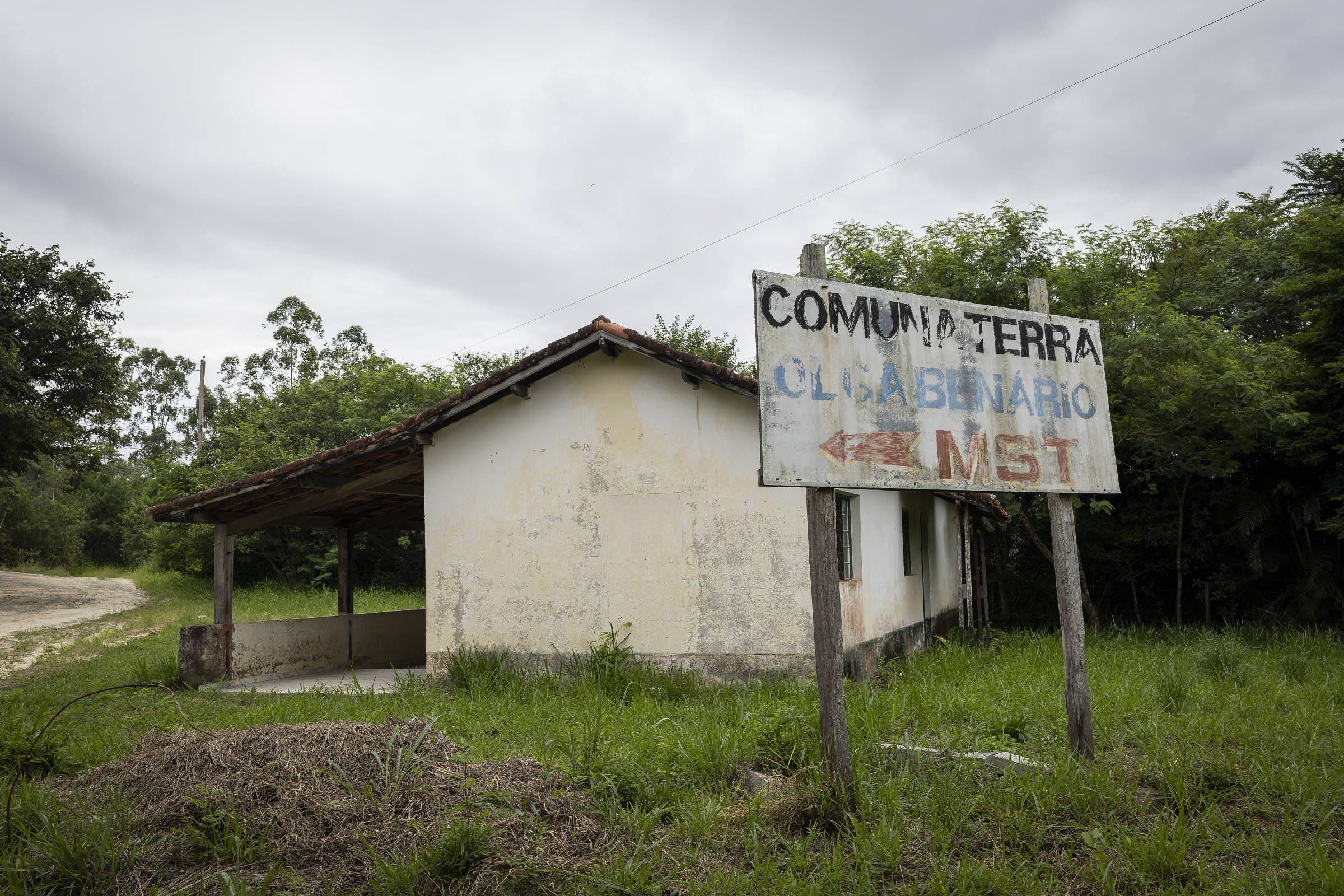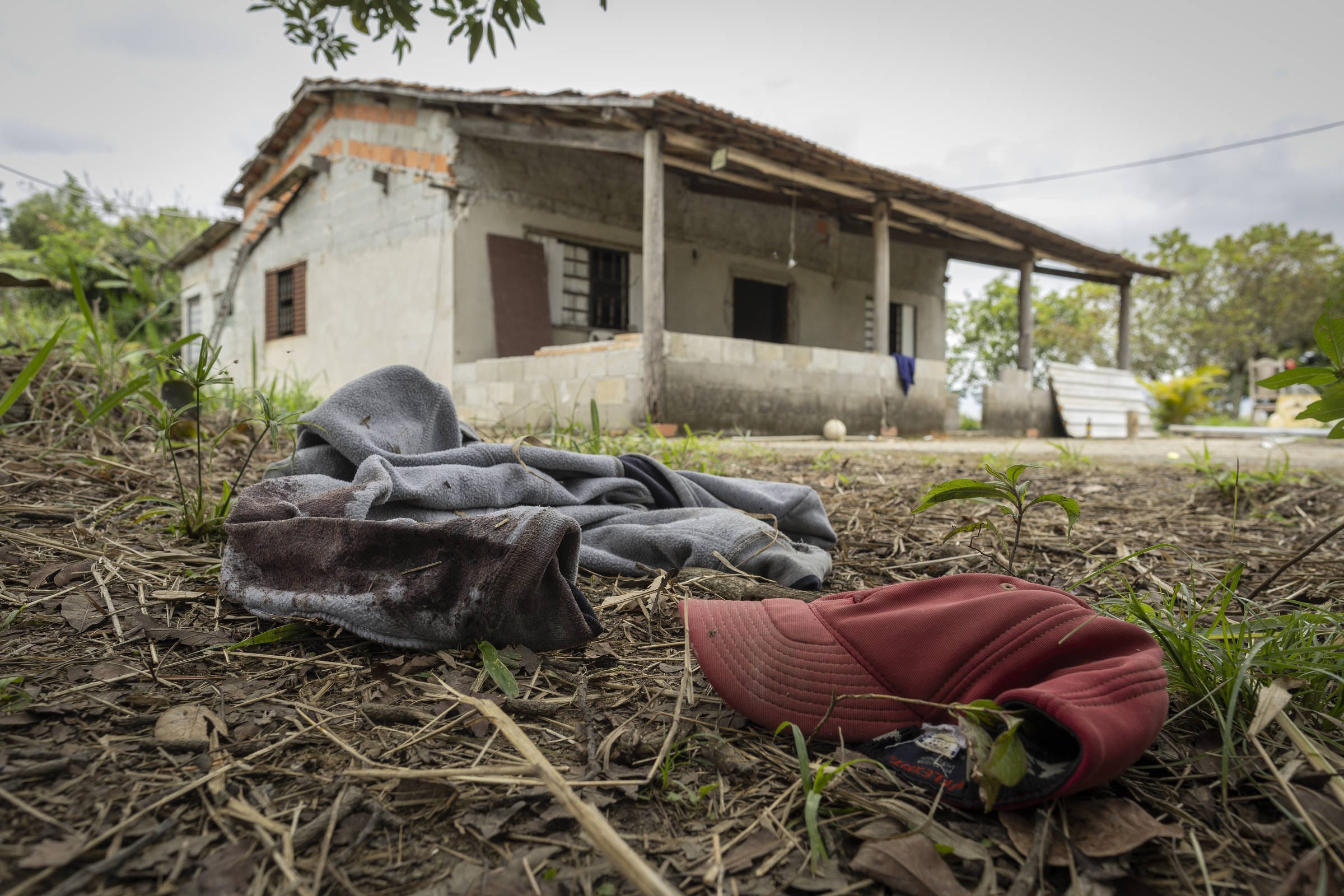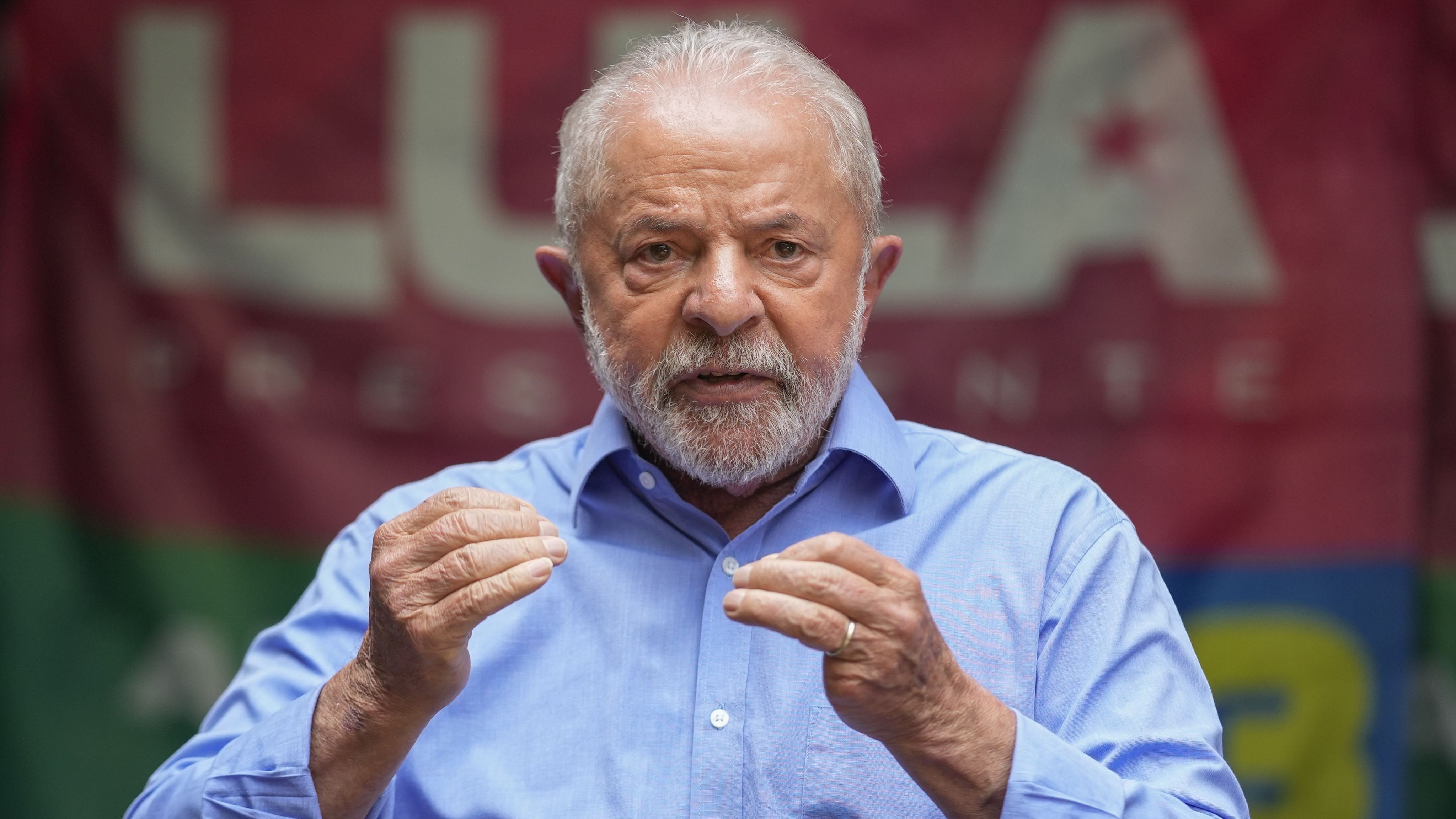
A month before he was assassinated, Valdir do Nascimento de Jesus thanked the Brazilian government for its help in ending his community’s long struggle for land. After eighteen years, Valdir announced in December, all families in the settlement of Olga Benário in the state of São Paulo had gained formal title to the land they had occupied. Sharing the victory in a WhatsApp group, Valdir thanked officials of Brazil’s land reform agency Incra, the minister for agriculture, and president Lula da Silva himself. It was Lula, said Valdir, that “signed the decree that makes regularisation possible.”
With regularização — the formalisation of their land title — the landless could mark their formal ownership of a small corner of Brazil. More than pride, title means access to capital, legal status, defence against expropriation. Yet it was precisely this question of titulação, of land titling, that led gunmen to shatter the settlement of Olga Benário in a brazen attack in January. The killing of two landless workers, Valdir among them, and the wounding of six others, hinged on the same victory the settlement had celebrated a month earlier.
The phenomenon of titulação is the story of the strangulation of the power and aspirations of Brazil’s rural poor. It represents not only the latest front in the long war of the landowning classes against agrarian reform, but the capstone of two decades of betrayal of the Movimento Sem Terra (MST, or Landless Movement) at the hands of its allies — Lula da Silva and his Workers Party. Nothing cuts deeper than the wounds of a friend.
AN ATTACK, A LAND GRAB
The settlement of Olga Benário lies on the outskirts of the city of Tremembé in the northeastern corner of the state of São Paulo. Named after a communist militant executed by Hitler’s Reich, the settlement has supported some fifty landless families since 2005. Their road to land had been difficult. Finalizing the settlement’s title rights in December represented the end of a fight for formal land ownership ongoing since 2007.
On 10 January 2025, the tenuous peace of this rural community was destroyed. An hour before midnight, a convoy of trucks and motorbikes tears down the road to the settlement. Valdir, a community leader, goes forward to talk to the intruders with another resident, Gleison Barbosa de Carvalho. Upon approaching the invaders, Valdir and Gleison are gunned down where they stand. The intruders keep shooting until six others sem terra are wounded, some shot in the head. When the attack is over, Valdir and Gleison are bleeding out in the dirt, their breathing ragged. They would die of their wounds that night in the hospital. ‘Valdirzão’, a respected regional leader, was 52, Carvalho just 28.

The residents of Olga Benário had seen this attack coming. They knew exactly who was responsible. Their invaders were not the traditional enemy of the landless poor — the jagunços [hired guns] of the large landowners who have long presided over one of the world’s most unequal land regimes. Instead, the invaders were grileiros. Land grabbers. Which is to say: they were likely landless Brazilians themselves.
Grilagem is as old as Brazil itself: theft and fraud raised to a mode of governance. It goes without saying that the most prolific and successful grileiros are the rich. The land barons that hold the nation in thrall could not have attained their huge latifúndia without theft on a continental scale. Take Carlos Medeiros, whose empire of fraud encompassed 29 million acres across the state of Pará — an area larger than Portugal and El Salvador put together.1
Yet the grilagem of the poor — irregular, piecemeal, though no less violent — is a significant phenomenon in its own right. Olga Benário offers a typical example. The attack on the MST settlement was a local affair, hinging on the ownership rights of a single vacant lot attached to the settlement on the fringes of Tremembé.
The lot had originally belonged to a landless family, but the woman heading the household quit the settlement and tried to offload the property to a new occupant. Yet no new families could legally own the lot until Incra, the state land reform agency, reassigned its title. This implied a messy and protracted legal process that few were eager to pursue.
After a while the issue seems to have slipped the minds of the settlement’s leaders. The lot’s ambiguous ownership certainly did not stand out to Valdir himself when he celebrated all families having their situation ‘regularised’ in December. For a year the lot simply lay unused. This was all the pretext needed for local grileiros to claim that land for their own.
The land grab began a year before the murders. Under the front of an real estate company, local toughs began harassing the settlement to hand over the vacant lot. The settlement refused. Tensions came to a head in January. The lot was raided for scrap metal. The property’s house and artesian well were vandalised.
The day before the invasion, a man who owned a local bar came to the settlement and made his threats explicit. Leave the lot alone, warned Ítalo Rodrigues da Silva, or he would return in force. The settlement braced for imminent attack. The night he was killed, Valdir and several other men were keeping watch in the house. They had sticks; the grileiros, guns.
THE WAR OF TWO TITLES
Much of the MST’s trajectory since the rise of the far-right in 2014 can be framed as a war between two types of land title. The first, Concessão de Uso, is free and grants hereditable usufruct rights over land, which itself remains the property of the state. This is the type of title officially supported by the Landless Movement, and which the majority of its settlers possess.
The second type of title, Título de Domínio, is different. The would-be owner buys the land off the state, albeit for less than market price. He can then sell it immediately. The land has been transformed into a commodity, a market asset. This is the title sought after by grileiros and aggressively promoted by the Brazilian right.
These two types of title thus correspond to diametrically opposed paradigms of land use. For the Landless Movement, “land cannot be any old commodity to be bought and sold.” Its goal of popular agrarian reform is not merely to transform rural workers into landowners on a smaller scale, but to end the commodification of land entirely. For the neoliberal right, capital must be served by turning public or protected land into private property.
It may seem counter-intuitive that the far-right, supported by the agribusiness lobby, has eagerly facilitated the sale of cheap land to working-class Brazilian citizens. But the titling campaigns launched by presidents Michel Temer and Jair Bolsonaro since 2017 have scarcely aided small farmers. Rather, they have deepened existing inequalities and further entrenched a neoliberal regime of agrarian counter-reform.
Across Brazil, titulação unleashed a frenzy of privatisation — a phenomenon supercharged by the launch of Bolsonaro’s Programa Título Brasil in 2020. That year, Incra issued more land titles than it had over the previous decade. Across Brazil, the amount of real estate created between 2016—2018 totalled more than 250 million hectares — an area a quarter the size of the country.
By opening the floodgates to land title, the right caused an explosion in grilagem. Those without legal access to land simply resorted to force or fraud to obtain it. Under Jair Bolsonaro, the government freely granted title to land seized illegally from ecological reserves, Indigenous territories, quilombos and landless settlements. Indeed, Bolsonaro encouraged this wave of illegal dispossession: there was no place for these non-market holdouts in his Brazil.
The right’s great land sell-off was one blade of the shears. The other was its defunding of the state land reform apparatus. Between these blades, landless workers and small farmers were effectively trapped. Bolsonaro demolished the state subsidies and food procurement programs that small settlements and farms required to survive. Cut off from state aid and beleaguered by debt and violence, many family farmers and sem terra earned title to their land merely to sell or lease it off as quickly as possible. Snapping up cultivable land on the cheap, real estate speculators and agro-corporations have made a killing across Brazil.
LOSING THE LANDLESS
These developments represent forces that the third Lula government, in power since 2023, no longer has the will or ability to resist. Lula may hold the presidency, but the Partido dos Trabalhadores’s dwindling power base — even more meagre in Congress than among the populace at large — is too weak to resist the agribusiness lobby outright.
A certain degree of compromise always necessary in a country dominated by entrenched elite blocs. Yet Lula has outdone himself in actively appeasing the sectors most committed to his downfall, even at the cost of hurting his most loyal supporters. The long alliance between the PT and MST has been permanently damaged. The Landless Movement can only stomach so many broken promises.

While the MST campaigned widely for Lula’s re-election in 2022, even running candidates for the PT itself, Lula has not so much as visited a landless settlement since taking office. His subsidies to agribusiness have exceeded even Bolsonaro’s. Meanwhile, Incra remains defunded and state programs designed to aid small farmers far too meagre to the task. Resettlement efforts for the MST’s hundred thousand landless families have slowed to a trickle. Having already crushed its dreams of agrarian reform in the 2000s, Lula now shows himself incapable of fulfilling even his paltry clientelist obligations to the MST.
Landless leaders are appropriately frustrated. "More propaganda, rhetoric, events and announcements at the Palácio will not suffice,” said MST spokesman João Pedro Stédile. “We need concrete means of solving real problems.” In the absence of those solutions, the MST will resort to more militant pressure tactics. Landless workers will likely carry out more occupations this coming year than in any over the past decade.
Occupations, protests, and road blocks inevitably generate ferocious right-wing backlash — including violence directed against sem terra themselves. But while the MST remains wary of burning their most important ally in Lula, the movement has judged that dialogue and petitions are no longer viable means of attaining a future for the rural poor. Their dissatisfaction underscores just how isolated Lula has become.
DIVERGENT FUTURES
What is the future of the Landless Movement under Lula III? The MST has long known that not all settlements are created equal. Certain larger, well-located assentamentos seem to have found themselves a durable market niche selling organic produce to supermarkets and co-ops in urban areas. These agricultural collectives, mainly located in southern or central states like Rio Grande do Sul and São Paulo, have had an impressive degree of success — even marking the MST as Latin America’s largest producer of organic rice.
Other settlements are dying a long slow death. In poorer areas, harassed by fazendeiros and land grabbers, many settlers are eager to call it quits. Some assentamentos have broken with the MST entirely as residents buy out their land from the state and lease it back to corn and soya farmers. The MST’s erstwhile dream — of a return to the land of those once expelled to the slums — is dead. We can imagine its tombstone: a green ocean of soybeans rippling from horizon to horizon.
This decline could be greatly slowed if Incra was expanded and funded enough to monitor the creation of new properties and ensure their ownership was not the result of grilagem. Policies to raise the thresholds for granting title and ban the sale of recently-titled land are also needed. Yet the political will for agrarian reform will not come from Lula or the Workers Party: only the mass mobilisation of the poor and working classes will bring about the long overdue reckoning that the landless deserve.
Forty-one years into the struggle, the Movimento Sem Terra shows no sign of giving up the fight.
Referenced in Masters of the Lost Land: The Untold Story of the Amazon and the Violent Fight for the World's Last Frontier, Heriberto Araujo, 2023







